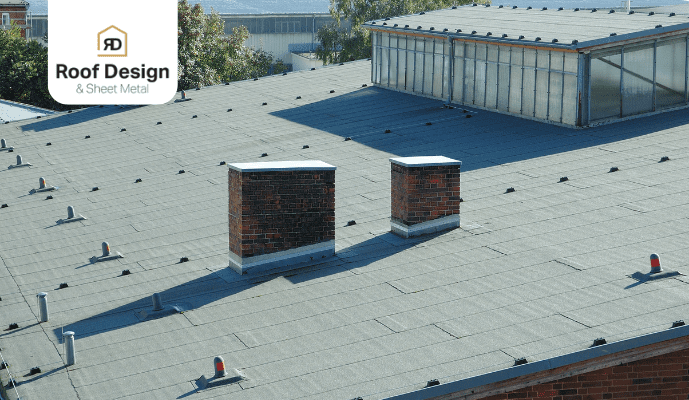Introduction
Commercial roofing refers to the specialized process of creating and maintaining roofs for commercial buildings. This practice differs significantly from residential roofing due to the scale, materials, and designs used. Understanding what commercial roofing entails is essential for anyone involved in property management or ownership of commercial buildings.
What Is Commercial Roofing?
Commercial roofing is a broad term that encompasses the roofing systems used on commercial buildings. Unlike residential roofs, which are designed for homes, commercial roofs are engineered to cover larger structures such as office buildings, warehouses, and retail centers. These roofs need to be durable, weather-resistant, and capable of withstanding the unique demands of commercial properties.
Types of Commercial Roofing Systems
There are several types of commercial roofing systems, each with its own advantages and applications. Common types include:
Built-Up Roofing (BUR) Systems
Built-Up Roofing, also known as BUR, is one of the oldest and most reliable roofing systems. It consists of multiple layers of bitumen and reinforcing fabrics, creating a durable and weather-resistant roof.
Modified Bitumen Roofing
Modified Bitumen Roofing combines the traditional BUR system with modern materials like polymer-modified bitumen. This provides enhanced flexibility and durability.
EPDM Roofing
EPDM (Ethylene Propylene Diene Monomer) is a popular rubber roofing material known for its durability and resistance to extreme weather conditions. It is commonly used on flat roofs.
TPO Roofing
TPO (Thermoplastic Olefin) roofing is a single-ply roofing membrane that is heat-welded at the seams, creating a strong and durable roof. It is known for its energy efficiency and reflective properties.
PVC Roofing
PVC (Polyvinyl Chloride) roofing is another single-ply membrane roofing system that offers excellent durability and resistance to chemical damage, making it suitable for various commercial applications.
Commercial vs. Residential Roofing
Commercial and residential roofing differ in several key aspects:
Design and Structure
-
Commercial Roofs: Typically flat or low-slope, designed to cover large areas.
-
Residential Roofs: Generally steep-slope, tailored for individual homes.
Materials Used
-
Commercial Roofing Materials: Often include EPDM, TPO, PVC, and modified bitumen.
-
Residential Roofing Materials: Commonly use asphalt shingles, metal roofing, and wood shakes.
Installation and Maintenance
-
Commercial Roof Installations: Require specialized skills and equipment due to the scale and complexity.
-
Residential Roof Installations: Typically simpler and faster to install.
Common Commercial Roofing Materials
Commercial roofing materials are selected based on their durability, cost-effectiveness, and suitability for large-scale applications. Some common materials include:
EPDM
Known for its resilience and ease of installation, EPDM is a cost-effective option for many commercial roofs.
TPO
TPO roofing is appreciated for its energy efficiency and reflective properties, helping to reduce cooling costs.
PVC
PVC roofing offers superior resistance to chemicals and environmental hazards, making it ideal for certain industrial applications.
Metal Roofing
Metal roofs are highly durable and can last for decades with proper maintenance. They are also fire-resistant and environmentally friendly.
Modified Bitumen
This material provides a strong, flexible roofing solution that can withstand various weather conditions.
Roofing Services by Roof Design Naples
Roof Design Naples specializes in providing comprehensive roofing services for both commercial and residential properties. Whether you need a new roof installation, routine maintenance, or a complete roof replacement, our team of experienced professionals is here to help. We offer a wide range of roofing materials and systems to suit your specific needs, ensuring that your property is protected and aesthetically pleasing.
Conclusion
Commercial roofing is a complex and vital aspect of maintaining commercial buildings. Understanding the different types of commercial roofing systems and materials can help property owners make informed decisions about their roofing needs. Whether you are managing a large warehouse or a small retail store, selecting the right roofing solution is crucial for the longevity and safety of your building.

